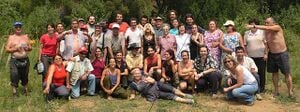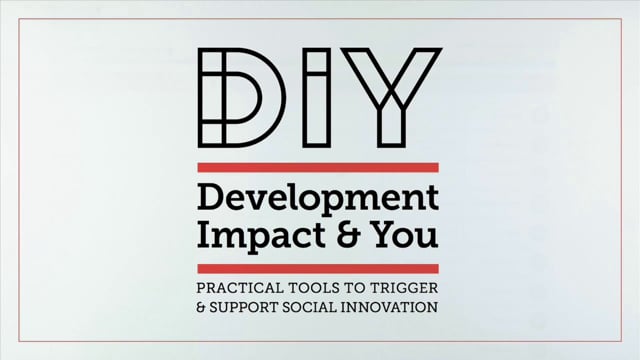
The majority of our information about resources in CASwiki is location or topic specific. Articles, or Resource subsections of place or topic articles, can be started off with just a few items of relevant information. ...Near you.
Our current list of resource articles is below. The information in the pages featured here is about international, global or generic resources.
Community involvement - News - Resources
Partnerships
Basic needs
- Water activism - Water and drought news
- Food activism - News - Resources
- Community energy - News
- Land activism - News
- Housing activism - Housing news
- Visions - News
- Commons - News
- Arts, sport and culture - News
- Health and wellbeing - News
- Reduce, reuse, repair and recycle - News
- Free stuff
- Sharing
- Community currencies activism - News
- Maps for community action - News
- Citizens data initiative - News
- Public interest law resources - News
- Funding community action
- Inspiring quotes
See also:
- International sustainable community events
- Community research
- Land activism
- Maps for community action
- Video for community action
- Recognising quiet members in community groups
- Quotes about community action and the power of community
- Young and beginning farmers
- Mini library
- Apps for sustainability
Other kinds of resources may be included in CASwiki's location pages (without there necessarily being a corresponding 'global' page). Examples include images (category:Images by place), Infographics, Inspiration, and Research.
Near you[edit | edit source]
- CASwiki resources by place, (category)
People first![edit | edit source]
A developing focus of CASwiki's resource content is the idea that people, their relationships and networks are communities greatest asset. It is also influenced by
Asset-based community development (ABCD) is a methodology for the sustainable development of communities based on their strengths and potentials. It involves assessing the resources, skills, and experience available in a community; organizing the community around issues that move its members into action; and then determining and taking appropriate action. This method uses the community's own assets and resources as the basis for development; it empowers the people of the community by encouraging them to use what they already possess.
[edit | edit source]
Share information about all kinds of resources for community action for sustainability.
Resources by place[edit | edit source]
You can view or share location specific information about resources for community action for sustainability via any of CASwiki's location pages.
Article subsections of reasonable size can become location specific resource pages (or similarly, topic resource pages, see below): examples include: Community resources UK, Community resources USA, Community resources India
Resources by topic[edit | edit source]
You can view or share topic specific information about resources for community action for sustainability via any of CASwiki's topic pages. An example of a topic specific resource page is Food activism resources
Guidelines[edit | edit source]
If you have any comments or concerns about these guidelines you are welcome to add these to the talk page.
Resources for all, not just 'professionals'
It's a feature of much material available on sustainability topics that 'Resources' are often written primarily for a 'professional' type audience (and so may contain jargon, unexplained acronyms, etc). It is hoped the CASwiki can redress the balance a bit and include articles, for example on topics such as community resources, written primarily from the point of view of community groups and concerned citizens..

[edit source]
Help out with what interests you most. As and when you can, and always at your own pace. Help by linking things up, checking for updates, checking external links, spelling and punctuation.
Experiment, test things out. Most of all - Enjoy, have fun !!
Help out by adding in your reviews of resources.
Wanted pages
- New articles, fork content from existing pages
- New articles
"For while knowledge defines all we currently know and understand, imagination points to all we might yet discover and create." Albert Einstein
'Pinned' resources topics[edit | edit source]
Topics 'pinned' (at top of listings), for example in resource topic listings on place pages:
Social innovation[edit | edit source]
"Go with your gut instinct. Be innovative. Innovation is about challenge, challenging others, challenging yourself, your own perceptions. If its hasn't got a challenge in it let someone else do it - you go and do something that is unique." Barbara Willis Brown of the Birmingham (UK) based organisation Scawdi - taken from a podcast on the Grassroots Channel[1]
Social innovations are new social practices that aim to meet social needs in a better way than the existing solutions, resulting from - for example - working conditions, education, community development or health. These ideas are created with the goal of extending and strengthening civil society. Social innovation includes the social processes of innovation, such as open source methods and techniques and also the innovations which have a social purpose—like activism, crowdfunding, time-based currency, telehealth, cohousing, coworking, universal basic income, collaborative consumption, social enterprise, participatory budgeting, repair Café, virtual volunteering, microcredit, or distance learning. There are many definitions of social innovation, however, they usually include the broad criteria about social objectives, social interaction between actors or actor diversity, social outputs, and innovativeness (The innovation should be at least "new" to the beneficiaries it targets, but it does not have to be new to the world). Different definitions include different combinations and different number of these criteria (e.g. EU is using definition, stressing out social objectives and actors interaction). Transformative social innovation not only introduces new approaches to seemingly intractable problems, but is successful in changing the social institutions that created the problem in the first place.
According to Herrero de Egaña B., social innovation is defined as "new or novel ways that society has to deal with Relevant Social Challenges (RSCh), that are more effective, efficient and sustainable or that generate greater impact than the previous ones and that contribute to making it stronger and more articulated".
Prominent innovators associated with the term include Pakistani Akhter Hameed Khan, Bangladeshi Muhammad Yunus, the founder of Grameen Bank which pioneered the concept of microcredit for supporting innovations in many developing countries such as Asia, Africa and Latin America, and inspired programs like the Jindal Centre for Social Innovation & Entrepreneurship and Infolady Social Entrepreneurship Programme of Dnet (A Social Enterprise).
Development Impact and You, practical tools to trigger and support social innovation
See also[edit | edit source]
- Category:CASwiki resources
- About community action for sustainability
- Join community action for sustainability
- Why grow community action for sustainability?
- CASwiki places
- CASwiki topics
- CASwiki news
References

